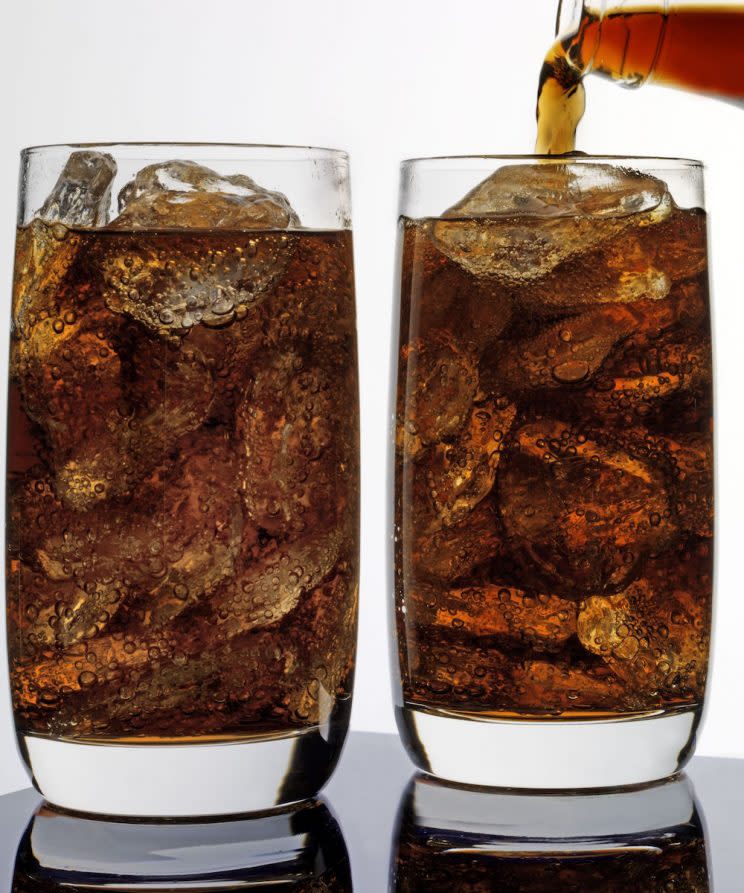Just one diet fizzy drink a day can triple your chances of a stroke or dementia, researchers suggest

If you’re a fan of fizzy drinks you might want to think again – research suggests that people who consume diet drinks every day could be nearly three times more likely to suffer a stroke or dementia.
Just one diet drink a day can increase the risk compared to less than one a week, the research suggests.
The research, published in the American Heart Association’s journal Stroke, is based on data for more than 4,300 people taking part in the Framingham Heart Study.
For the study, participants filled in questionnaires on their food and drink intake at three points during the 1990s. Researchers followed the group for 10 years, noting 97 cases of stroke during that period, and 81 cases of dementia.
After adjusting for factors like age, sex, education, calorie intake, exercise and smoking, they found people who had at least one diet drink a day had an almost three times increased risk of dementia or stroke.

Researchers warned people not to view sugary drinks as a “healthy option” and said further studies are needed on the links between drinks, dementia and stroke.
Matthew Pase, senior fellow in the department of neurology at Boston University School of Medicine, said: “Our study shows a need to put more research into this area given how often people drink artificially sweetened beverages.
MORE: Mobile phones can cause brain tumours, Italian court rules
MORE: Slime from FROGS ‘may be able to cure the flu’
“Although we did not find an association between stroke or dementia and the consumption of sugary drinks, this certainly does not mean they are a healthy option.
“We recommend that people drink water on a regular basis instead of sugary or artificially sweetened beverages.”
But some parties have said the study does not directly suggest that diet drinks cause dementia.
Gavin Partington, director-general of the British Soft Drinks Association, said the researchers had found no “cause and effect” or science-based evidence to support their theories.
“In fact, based on the evidence, Public Health England is actively encouraging food and drink companies to use low-calorie sweeteners as an alternative to sugar and help people manage their weight.
Dr Rosa Sancho, head of research at Alzheimer’s Research UK, said: “This interesting new study has pointed to higher rates of dementia in people who drink more artificially-sweetened drinks, but it doesn’t show that these drinks are the cause of this altered risk.
“Future studies will need to confirm these findings in other groups of people, and explore what might be underlying any link between artificially-sweetened soft drinks and dementia.”

 Yahoo News
Yahoo News 


